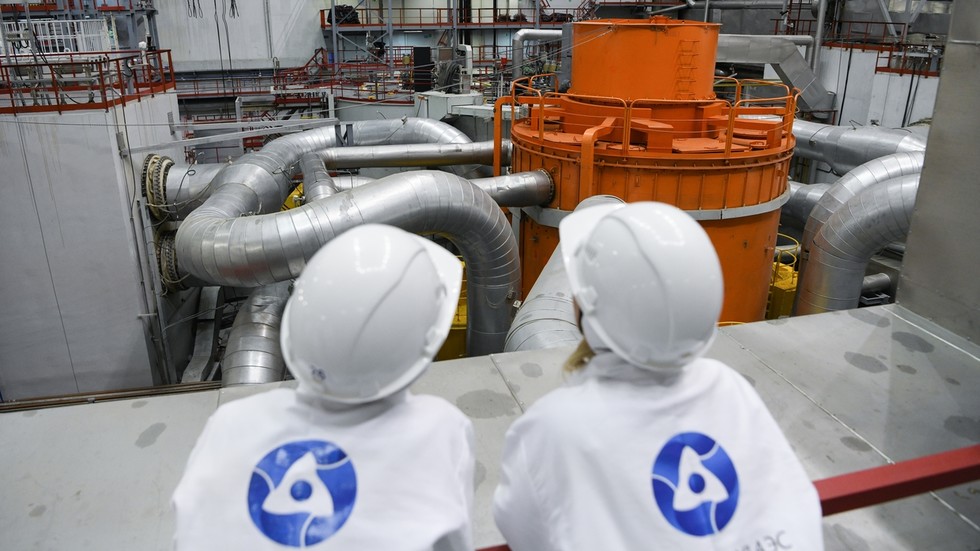
The reliance poses a national security threat, a senior energy figure in Washington has said

© Sputnik/Vladimir Podoksenov
The US imports vast amounts of nuclear fuel and compounds from Russia, a reliance which poses a “critical” threat to national security, a senior official in the administration of President Joe Biden has told the Financial Times.
Contracts with Russian suppliers provide about 20% of nuclear fuel used by the US, which is “gravely concerning,” the assistant secretary for nuclear energy, Kathryn Huff, said in an interview published on Tuesday.
“It’s really critical that we get off of our dependence, especially from Russia,” Huff stated. “Without action Russia will continue to hold on to this market… this is really important for national security, for climate, for our energy independence.”
While the US and its EU allies have imposed sanctions on Russian oil and gas due to the Ukraine conflict, sales of nuclear fuel remain legal and unsanctioned. Currently, there are few alternative supply sources to power American and European power plants. However, the politics surrounding purchases of Russian uranium have forced many importers to seek alternative sources of supply, the FT reported, citing industry groups.
“There is alignment in our industry to step away from Russia, but you need something to step to. We really need to increase capacity in that part of the supply chain,” said Maria Korsnick, chief executive of the Nuclear Energy Institute.
READ MORE: Uranium prices hit highest level for 15 years
A subsidiary of Russian nuclear energy giant Rosatom, Tenex, is currently the only company in the world to provide commercial sales of Haleu, a new type of fuel used in the modern generation of smaller and more efficient nuclear reactors.
Russia owns about 50% of the world’s uranium enrichment infrastructure which is critical for producing nuclear fuel. The country continues to be a major provider of uranium mining, milling, conversion, and enrichment services for US utilities. Last year, Washington relied on Moscow for about a quarter of its enriched uranium, according to US government figures.
For more stories on economy & finance visit RT’s business section




